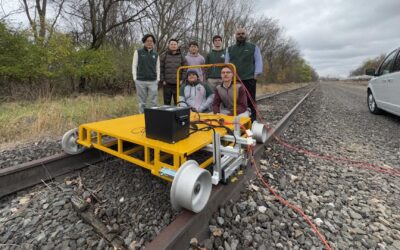The Michigan State University (MSU) College of Engineering recently conducted in-depth discussions with industry partners to explore developing practice-ready engineers and computer scientists. In response to these conversations and evolving workforce demands, MSU has launched a new undergraduate discipline: Technology Engineering.
Engineering has long been a discipline at the intersection of mathematics and science, tasked with addressing technical issues ranging from the ordinary to the monumental. As the tools and technologies have evolved—transforming from slide rules to powerful laptops—so too must the education of engineers. The challenges faced by today’s engineers have become increasingly complex, particularly as technology continues to embed itself into every aspect of modern life. Consequently, an adapted engineering education model will equip future engineers with the skills and tools necessary to navigate and solve the multifaceted issues of the interconnected world.
The last several decades have brought about a remarkable transformation in the engineering workforce, reflecting not only advancements in technology but also changes in the breadth and depth of engineering challenges. To adapt to workforce needs, a reimagined undergraduate engineering teaching model must prepare graduates for these challenges. Traditional lecture-based models augmented with an integrated approach that prioritizes hands-on experience and real-world applications can prove invaluable. In an age when information is abundant and easily accessible, students who can apply learned theories while developing critical thinking and problem-solving skills have an advantage. Approaches that involve incorporating project-based learning, interdisciplinary collaborations, and access to industry-standard tools from the outset of the undergraduate education not only enhance understanding but also foster creativity—both are essential for today’s engineering challenges.
Engineers once relied on manual calculations and rudimentary tools, but today’s practitioners utilize sophisticated software, complex hardware, and analytical tools to address intricate design and operational issues. Therefore, the integration of technology into engineering curricula is paramount. For example, tools like MATLAB and Python enable students to perform complex analyses that would have been prohibitively time-consuming in the past. Incorporating these technologies into the curriculum ensures graduates are not only familiar with current tools but can adapt to new technologies as they emerge.
Moreover, the rapid advancement of technology means engineers must be equipped with skills that extend beyond technical knowledge. As engineering increasingly intersects with fields such as data science, business, and even social sciences, educators must prioritize the development of professional skills alongside technical competencies. Communication, teamwork, and critical thinking are vital for engineers who collaborate across disciplines and convey complex ideas to diverse audiences. Academic programs that foster these skills through group projects, presentations, and student-led club activities provide a more holistic engineering education.
The Technology Engineering program at MSU embraces industry needs by engaging in a multidisciplinary approach, incorporating curricula in mechanical, electrical, and computer engineering with a foundation in computer science. The program combines cutting-edge technologies, hands-on experiences, and real-world applications to prepare students with strong engineering and problem-solving capabilities. MSU Technology Engineering graduates will be prepared to tackle the complex challenges of our interconnected world.
As we look ahead, the engineers of tomorrow will not only need to apply math and science but also to innovate and adapt in ways that were previously unimaginable. Education models must do the same; it is necessary for the sustainability and advancement of engineering in the modern era.
Janet Brelin-Fornari is the founding director of the Technology Engineering program in the College of Engineering at Michigan State University. She joined MSU in 2023 with extensive experience in academia and the mobility industry and has a broad portfolio of research and development in pediatric crash safety including anew, federal side impact standard for child restraint systems.




